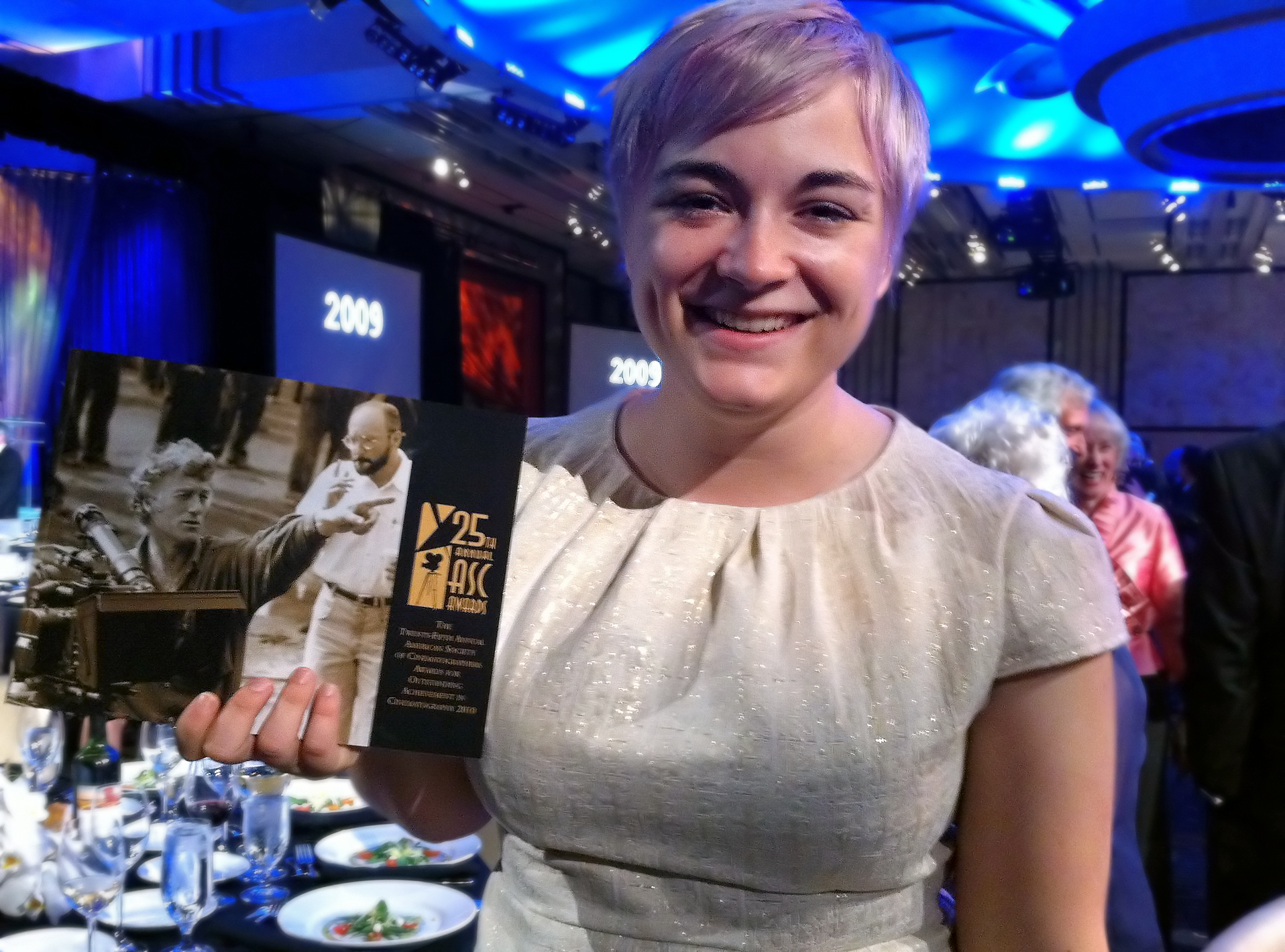Correction: The original version of this article contained several errors. Dagmar Weaver-Madsen is a graduate student in cinematography. Weaver-Madsen’s romantic relationship with director Alex DeMille began shortly after the making of “The Absence.”
A man in a black suit stands paralyzed in the middle of a deserted, wet asphalt road. He stares catatonically offscreen, beyond the green, yet glum fields that frame either side of the road. “The world is dying,” the voice-over declares, as the camera dollies back, transitioning from a medium shot to an extreme long shot. “Can you feel it?”
The previous constitutes about six seconds of the short film “The Absence,” which tells the story about a bureaucratic worker bee, who suddenly realizes the job he has been blindly performing is negatively impacting the world.
The cinematographer in charge of creating the images that allow this narrative to unfold is UCLA cinematography graduate student Dagmar Weaver-Madsen, and on Feb. 13, her work on the movie was recognized when she won the prestigious William A. Fraker Student Heritage Award during the 25th annual American Society of Cinematographers’ award ceremony.
At the ceremony, Weaver-Madsen shared the stage with established cinematographers such as Wally Pfister (“Inception”) and Jonathan Freeman (“Boardwalk Empire”), whom she cited as sources of inspiration.
“Everybody was so open, giving and encouraging, which made me feel very hopeful,” Weaver-Madsen said.
“It gave me the sense that if I just keep trying to make my art and craft better and remember to stay honest and creative, hopefully one day I’ll be back at the ceremony.”
Bill McDonald, head of UCLA’s cinematography program, said he is delighted to see Weaver-Madsen, who graduated from UCLA’s cinematography program in 2010, take home the Student Heritage Award, which is given annually for outstanding artistic achievement in student filmmaking.
“We expected great things from Dagmar (at UCLA), and she has certainly surpassed those expectations,” McDonald said.
According to McDonald, casual audiences may think that cinematography is simply about creating pretty pictures, but the main purpose of cinematography is to support and further the narrative.
Weaver-Madsen said that she also feels strongly about the role of the cinematographer as a storyteller.
“It would be a pretty boring job if it was just about making things look nice,” Weaver-Madsen said.
“But framing, lighting, camera movements, etcetera, are all visual choices that should create emotional reactions, as well as communicate information about the characters and about the story.”
According to McDonald, it is precisely Weaver-Madsen’s inherent understanding of narrative structures that makes her so talented. However, he also stressed that she has a very artistic streak, which translates to all projects she undertakes.
“Whether Dagmar is working on a paper, designing a business card or working on a movie, she is very intuitive and imaginative,” McDonald said.
“I’d say she is an artist first and a craftsperson second, but it is the balance of those two sides that makes her the effective cinematographer that she is.”
Yet, working on “The Absence,” for which Weaver-Madsen also won the 2010 Panavision Award in Cinematography, has brought more than praise and recognition with it.
The film, which Weaver-Madsen described as “a supernatural noir,” is written and directed by her longtime friend and alumnus Alex DeMille, who graduated from UCLA with a master’s of fine arts in film directing in 2010.
Weaver-Madsen first met DeMille in film school, when a random draw of numbers decided that she would be his director of photography.
Weaver-Madsen said this marked the beginning of a strong professional work relationship as well as a deep friendship.
However, after the making of “The Absence,” during which Weaver-Madsen said she practically lived in DeMille’s house for three months, their relationship developed from friendship into a romantic relationship.
“Working on a film is such an intense experience, and you become so close with the people you are working with,” Weaver-Madsen said. “Alex (DeMille) and I have worked together throughout film school, and we haven’t driven each other crazy yet, so it actually seemed really organic and natural that we would end up together.”
According to DeMille, “organic and natural” is also a description that holds true of their professional collaborations.
“It’s hard to separate my direction from her ideas because we work so well and so fluidly together. She understood my script and my vision for “˜The Absence,’ and was able to use her own vision to enhance it,” DeMille said. “The movie would have been very different without Dagmar onboard.”
Currently, DeMille said he is working on turning “The Absence” into a full-length feature, which Weaver-Madsen will also shoot.
“I will always want to work with (DeMille), because my goal is to always keep shooting interesting, thought-provoking projects,” Weaver-Madsen said.
“This is what I have to do and what makes me happy. It’s the best thing I can share with people.”
